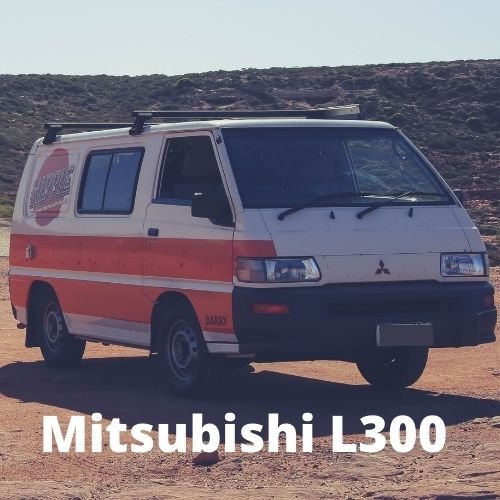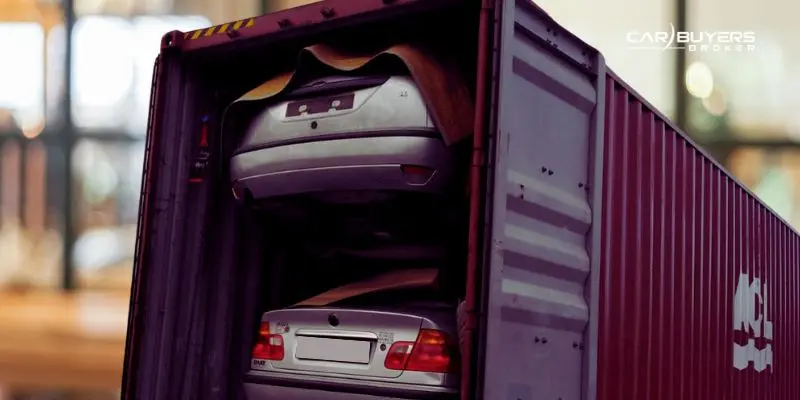The Mitsubishi L300 Bus is a commercial vehicle manufactured by the Japanese carmaker Mitsubishi Motors. The car has been in production since 1968 and has undergone several upgrades and facelifts. It is also known as the Mitsubishi Delica in some markets. However, due to scarcity, the Mitsubishi L300 Bus price is high. In this article, we take you on a journey to uncover the type of L300, the cost of buying, and the importation of why the micro transporters valued the multipurpose van in some remote areas in Nigeria.
If you don’t have the time to read through the entire article, no problem. Below is a form to request any L300 in Germany. We can also help you to find freshly imported ones in Nigeria.
L300 Bus is typically used for commercial purposes, such as public transportation, delivery, and cargo transport. It has a boxy and utilitarian design, with a high roofline that provides ample headroom for passengers or cargo. You can buy either Foreign or locally used L300 buses in the country.
L300 Power And Fuel Consumption
The L300 Bus is powered by a range of gasoline and diesel engines, depending on the market and model year. The most recent models have a 2.4-liter four-cylinder gasoline engine that produces 97 horsepower and 131 lb-ft of torque. It can be paired with either a five-speed manual or a four-speed automatic transmission.
The L300 Bus has a seating capacity that ranges from eight to 18 passengers, depending on the configuration. The interior is spacious and functional, with air conditioning, power windows, and a basic audio system.
Regarding safety, the L300 Bus has standard features such as seatbelts, ABS brakes, and driver and passenger airbags. However, it may not have some advanced safety features in modern passenger cars.
Overall, the Mitsubishi L300 Bus is a reliable and practical commercial vehicle that is well-suited for various business applications.

To get an average Mitsubishi L300 bus price in Nigeria, one needs to look into the following search criteria:
- The built year
- Type of Mitsubishi L300
- Condition of the bus
- The type of engine
- Foreign or locally used
- Original paint (not painted since in Nigeria)
- Transmission type (manual or automatic)
Mitsubishi L300 Bus Price In 2024
| Built Year | Type of Mitsubishi L300 | Condition of the bus | Type of Engine | Foreign or locally used | Original paint | Transmission Type | Price in Naira (N) |
| 1998 | Bus Bus | Used Used | 4-cylinder 4-cylinder | Foreign Nigerian | Manual Manual/auto | 2,500,000 1,200,000 | |
1999 | Minibus Bus | Used Used | 4-cylinder | Nigerian Nigerian | Yes | Manual Manual | 1,800,000 2,000,000 |
2000 | Bus Bus | Used Used | Foreign Nigerian | Manual/ Auto Manual | 3,000,000 1,400,000 | ||
2001 | Bus | Used | Foreign | Yes | Manual | 3,200,000 | |
2002 | Bus Bus | Used Used | Foreign Nigerian | Yes Yes | Manual Manual | 3,600,000 2,500,000 | |
2003 | Bus Bus | Used Used | Foreign Nigerian | Manual Manual | 3,700,000 2,500,000 | ||
2004 | Bus Bus | Used Used | Foreign Nigerian | Yes | Manual Manual | 4,000,000 2,900,000 |
How To Import Mitsubishi L300 To Nigeria From Germany
Importing a foreign used L300 to Nigeria from Germany can be a simple process, but here are the general steps you should follow:
- Find a reputable car dealer or exporter in Germany that specializes in exporting vehicles to Nigeria. You can find such dealers through online platforms, forums, or directories. Check their reputation, licenses, and customer reviews before proceeding.
- Choose the Mitsubishi L300 you want to import and negotiate the price and terms of the sale with the dealer or exporter. Ensure all necessary documents, including the vehicle’s registration, insurance, and export certificates, are obtained.
- Arrange for shipping and transport of the vehicle from Germany to Nigeria. You can choose between shipping options, such as container, roll-on, or roll-off (RoRo). Container shipping is usually more secure and provides more protection to the vehicle during transit, but it is also more expensive than RoRo shipping.
- Clear the vehicle at the Nigerian port of entry. This involves obtaining a bill of lading, paying customs duty and taxes, and obtaining necessary permits and licenses.
- Register the vehicle and obtain license plates in Nigeria. This involves providing proof of ownership, insurance,

It is important to note that the regulations and requirements for importing vehicles to Nigeria may vary and change over time, so it is recommended to consult a qualified customs agent or shipping company to ensure compliance with all regulations and requirements.
Conclusion
In conclusion, the Mitsubishi L300 Bus is a versatile and reliable commercial vehicle with a long history of production and use worldwide. Its boxy and utilitarian design, along with a range of engine options and seating configurations, make it well-suited for various business applications such as public transportation, delivery, and cargo transport.
While it may not have all the advanced features in modern passenger cars, it provides standard safety features such as seatbelts, ABS brakes, and airbags. Overall, the L300 Bus is a practical and cost-effective option for businesses needing a commercial vehicle.
Do you want to import a foreign used Mitsubishi L300 bus from Germany? → Request Your Bus And Get The Best Deals
Related Topics: Importing Foreign Used L300
Loading Items In A Car, Bus Or Truck In The EU Now
